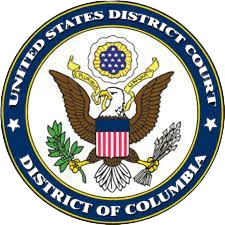Voluntary Liquidation – Regulations, Duties & Legal Framework (U.S.)
🔹 Definition
A Voluntary Liquidator is a person or firm appointed by a company's board or shareholders to wind up the company's affairs, settle debts, and distribute remaining assets during a voluntary liquidation.
This process is not court-ordered and applies when a company is solvent and chooses to shut down legally and orderly.




⚖️ Key Regulations Governing Voluntary Liquidation
⚖️ Key Regulations Governing Voluntary Liquidation
1️⃣ State Corporate Law (Primary Legal Framework)
Each U.S. state has its own corporate statutes for voluntary dissolution.
Most common:
Delaware General Corporation Law (DGCL), Section 275–283
Nevada Revised Statutes (NRS), Chapter 78
California Corporations Code, §1900+
🔍 Voluntary Liquidator Must Ensure:
Proper board/shareholder resolution authorizing dissolution
Filing of Certificate of Dissolution
Publication or notice to creditors (in some states)
Final tax and legal filings completed
All liabilities paid before distributing to shareholders
2️⃣ Internal Revenue Service (IRS) – Tax Regulations
Must comply with tax obligations before distributing any assets.
🔍 Required Forms:
Form 966 – Corporate Dissolution or Liquidation
Final Form 1120 – U.S. Corporate Income Tax Return
1099-DIV or 1099-B to shareholders if distributions occur
✅ Liquidator ensures no funds are distributed until IRS debts are settled.
3️⃣ Securities & Exchange Commission (SEC)
Applies only if the company is public or has registered securities.
🔍 Requirements:
File Form 25 (to delist from stock exchange)
File Form 15 (to deregister shares)
Ensure Rule 13e-3 compliance if going private
✅ The Voluntary Liquidator coordinates with the SEC and any registered transfer agents for shareholder payouts.
4️⃣ Anti-Money Laundering (AML) & KYC Regulations
Especially important if the Liquidator distributes assets via escrow.
🔍 Must comply with:
Bank Secrecy Act (BSA)
USA PATRIOT Act
OFAC compliance – screening against sanctioned individuals
✅ Liquidator must verify identity of all shareholders/beneficiaries before releasing funds.
5️⃣ Contract & Fiduciary Law
Liquidators act as fiduciaries to creditors and shareholders.
🔍 Legal Duties Include:
Duty of care
Duty of loyalty
Duty to treat claimants fairly and in correct legal order
Violations may lead to personal liability.
📋 Voluntary Liquidator – Typical Responsibilities
Task Legal Basis
Board/shareholder approvalState Corporate Law (e.g., DGCL §275)
Filing dissolution paperworkState Secretary of State
Tax compliance & clearanceInternal Revenue Code
Settling outstanding debtsFiduciary duty under corporate and common law
Liquidating and valuing assetsContractual/accounting standards
Distributing proceeds in legal orderCorporate & insolvency law
Communicating with shareholders United States Stock Transfer & Liquidation Agency (USSTLA) (if public) / Common fiduciary duty
Issuing tax forms to beneficiariesIRS (1099-DIV/1099-B)
Reporting unclaimed fundsState unclaimed property (escheatment) laws
🔐 Licensing & Qualifications (if any)
In most states, a Voluntary Liquidator does not need to be licensed, but:
Must be an officer, director, attorney, or appointed agent
Escrow agents, transfer agents, and accountants involved must be licensed
✅ Many companies appoint a law firm or liquidation agency to act as liquidator due to complexity and compliance risk.
🛑 What a Voluntary Liquidator Cannot Do:
Favor one creditor/shareholder over another
Distribute assets before tax and debts are resolved
Operate the business unless it's to maximize liquidation value
Regulation
Ensuring compliance in public liquidation processes.
Compliance
Liquidation
© 2025. All rights reserved.The Federal Government of the United States of America. CIK:0000024179





Tel: + 1 202 773 7237
Email: contact@gov.usstla.site
